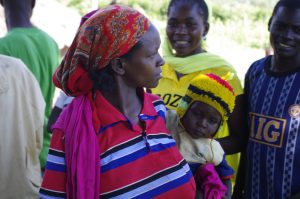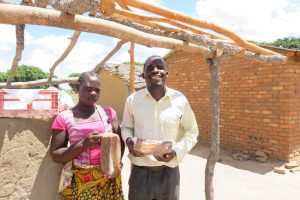
Life savings
We have been working with pastoralist communities in Dollo Ado district, southern Ethiopia, for many years. Women in this region often had to ask for permission and money from their husbands to access health care. Sometimes their husbands would refuse to sell livestock to raise the necessary funds.
Women in Suftu village, with support and training from Health Poverty Action, have now established the Suftu Health Insurance Group. The group has 15 members, all women, who save approximately £1.60 each per month – a considerable amount by the standards of pastoralists in this region. They can use this money to pay for transport to health facilities or to purchase drugs when they or their children are unwell.
Now the women can make their own decisions and access funds when they need medical assistance. They have sufficient resources to deal with health issues as they arise, both for themselves and their children. The group succinctly summarized their ability to better manage their health with the phrase “we are now government”.

Baking a living in Malawi
Our sister organisation Find Your Feet Malawi has been working with the community around the northern village of Bulala. In this predominantly agricultural region, women have limited land tenure and security, and often have limited authority over the use of household income.
Through the Bulala Sustainable Livelihoods project, women are learning how to produce commercial goods to support their economic independence and empowerment. Women like Linley Soko, a married mother of four from Josaya Village.
Before her involvement in this project, Linley’s primary occupation was farming. She has now completed training in food processing and utilisation, learning how to bake bread, scones, biscuits, and doughnuts. Linley has started her own bakery business with capital of just £9 and has already made a return of £95.
Linley tells us: “I thank Find Your Feet for training me in bakery. Just imagine from the training I attended, I realize money every day from baking breads and doughnuts. Before the training in bakery, I used to struggle…for food and income but now it’s history. My family can now fund basic needs for our children like buying clothes, groceries and uniforms, which was not the case before”.

